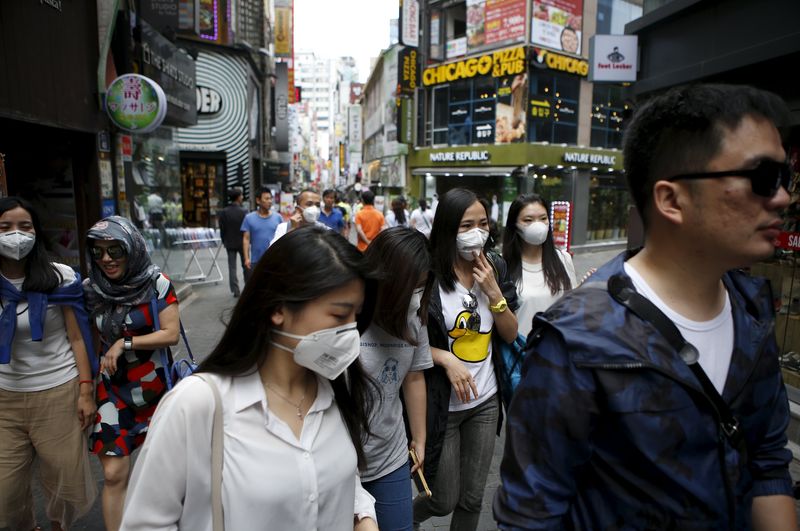
South Korea’s economy can still avoid its first annual contraction in more than two decades if stimulus measures including a third supplementary budget submitted to parliament get carried out quickly enough to build on the momentum of improving exports and consumer confidence, Hong said in an interview with Bloomberg on Friday.
“We are seeing signs of consumption and exports recovering from May,” Hong said in his Seoul office. “What’s more important than pouring out more measures and money is ensuring that the third extra budget and the series of measures taken in the first half feed through.”
The government has so far pledged more than 270 trillion won ($225 billion), or roughly 14% of its gross domestic product, to support businesses and families hit by the pandemic. Though most economists expect South Korea’s GDP to contract this year for the first time since the Asian financial crisis in the late 1990s, Hong reiterated that the government’s 0.1% projection isn’t out of reach if policy efforts are swiftly implemented.
Exports may show surprising strength toward the end of the year as major trading partners reopen their economies, Hong said, with chips, ships and medical supplies leading the recovery.
South Korea’s exports slumped more than 20% in April and May, but early trade data point to a more moderate fall this month amid resilient chip demand and more purchases from China.
“The atmosphere for an improvement of exports is turning more favorable,” he said, while adding that overall shipments will still likely contract for the year.
The Bank of Korea has also done its part to avert a deeper downturn, cutting rates to a record 0.5% and providing unlimited liquidity via repurchase agreements. While pledging to keep monetary policy accommodative until the economy recovers, Governor Lee Ju-yeol recently flagged the need to prepare for an eventual policy normalization to prevent financial distortions.
Hong said he understands Lee’s concerns from a monetary policy perspective, but added that the focus must stay on economic recovery for now.
“The timing is too early to talk about normalizing the supply of liquidity as many companies are still complaining about a lack of liquidity,” Hong said.
The government’s stimulus measures are expected to push up South Korea’s debt-to-GDP ratio to about 43%, but that’s still very low compared with the OECD average of around 110%, Hong said.
South Korea still has fiscal room for further action, though the pace of debt increase could be a concern, he said. The government is looking to propose rules limiting debt accumulation in late August, he added.
As for ongoing minimum wage discussions for next year, Hong said the economic situation under the coronavirus should be considered by the committee that sets the rate of increase, as well as the welfare of workers.
The minimum wage rose by double digits in 2018 and 2019 after President Moon Jae-in took office vowing better living standards for workers. The pace slowed to 2.9% for this year amid a backlash from businesses.
“I’m keeping a close eye on this because the decision would have a large impact on the economy,” Hong said.
©2020 Bloomberg L.P.



